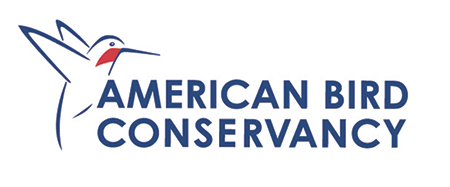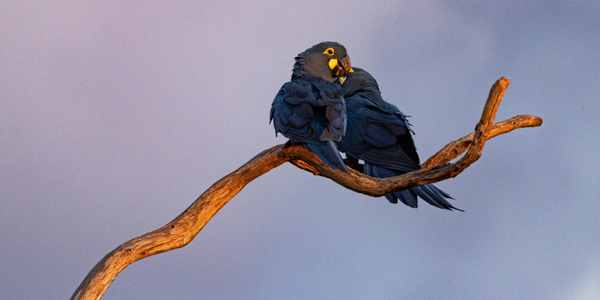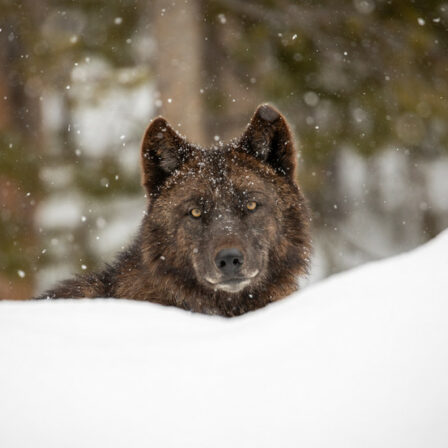A unique bird species and traditional livelihoods are threatened by a French company’s wind energy project; communities ask the United Nations to intervene. |
 | Media Contact: Jordan Rutter, Director of Public Relations | [email protected] |@JERutter |
As world leaders gather in Montreal for the United Nations’ (UN) COP15 biodiversity conference, and UN environment chief Inger Andersen warns that “we are at war with nature,” the future for the Endangered Lear’s Macaw hangs in the balance in Bahia, Brazil. So does the way of life for 600 families whose communal lands are increasingly being declared off-limits by French energy company Voltalia. For nearly two years, the company has denied all requests from biodiversity conservation groups and affected communities to relocate its wind energy project away from the habitat of the rare bird. Now, a group comprising 70 organizations and community associations, and supported by American Bird Conservancy (ABC), WWF, and Re:wild, has appealed for help with a formal complaint to the United Nations. In the complaint to the UN Office of the High Commissioner for Human Rights, 70 local organizations and community associations in the Canudos region of northeastern Brazil state that French company Voltalia began installation of 28 wind turbines — being constructed on 136 acres (55 hectares) of land vital for people and wildlife — before the company conducted the required environmental impact studies and public hearings. The complaint calls for Voltalia to suspend the project and move it out of Lear’s Macaw habitat, and follows up on a public letter requesting the same that was released in August of 2021. “The Lear’s Macaw has come back from the edge of extinction through intensive conservation efforts over the past 35 years, and now faces the risk of deadly collisions with turbines and associated powerlines,” said Amy Upgren, Director of Alliance for Zero Extinction and Key Biodiversity Area Programs at ABC. “Renewable energy is vital in the fight against climate change, and so is conserving our planet’s increasingly endangered wildlife,” added Lewis Grove, Director of Wind and Energy Policy at ABC. “Researchers at COP15 project that one million species are facing extinction. Will the Lear’s Macaw be one of them? We’re advocating that this project be relocated where it will do less harm.” Project construction is already negatively impacting roughly 600 families from local traditional communities, according to the complaint by the Regional Coordination of Traditional Pastoral Communities in Canudos, Uauá and Curaçá. The project is restricting families from using the communal lands they have used for generations to graze goats and cattle, leading to overgrazing on the areas that remain for livestock. The communities assert that Voltalia is increasingly fencing off these communal lands and constructing roads and gates, further blocking access to the land. Luiz Carlos de Andrade Santos, a member of the Regional Coordination of Traditional Pastoral Communities in Canudos, Uauá and Curaçá, stated: “The Traditional Communities from Fundo de Pasto de Canudos, Uauá, and Curaçá in the State of Bahia denounce all violations of territorial rights, disrespect for the way of life of families and failure to present the real impacts of a wind farm project, as well as failure to carry out Free Prior and Informed Consultation for the impacted communities and to comply with environmental legislation. “We expect and demand due reparations for the damage caused and that the project be suspended,” Andrade Santos said. “Since discussion of this project began several years ago, we have advocated for it to be moved out of the habitat of the Endangered Lear’s Macaw,” said ABC’s Amy Upgren. “Our biodiversity conservation partners Projeto Jardins da Arara de Lear, Fundação Biodiversitas, and SAVE Brasil have done the same, and Voltalia has not budged. We hope that the local communities’ request to the UN will bring about a change of heart.” The Lear’s Macaw is an iconic species that is a source of pride in the region and attracts tourists from all over the world. The project is located in the species’ only habitat, which has been globally recognized as a Key Biodiversity Area (KBA) — a site of global importance to the planet’s overall health and the persistence of biodiversity. It is also an Alliance for Zero Extinction (AZE) site and has been designated as a Priority Area for the Conservation of Biodiversity in the Caatinga by the Brazilian Ministry of Environment. The Brazilian Energy Research Company, a federal public company created by the National Congress, includes Brazilian AZE sites as areas of importance in a spatial planning tool developed to help energy projects limit their impact on biodiversity. Due to the threat to the Lear’s Macaw, in 2021 the Public Prosecutor of the state of Bahia, Brazil recommended the immediate suspension or cancellation of the wind project due to noncompliance with federal legislation. Voltalia also appears to be acting against the standards laid out in its own Sustainability Report, which states that “Voltalia works to meet IFC’s (International Finance Corporation) Performance Standards on Environmental and Social Sustainability.” IFC’s performance standard clearly states that AZE sites “will not be acceptable for financing, with the possible exception of projects specifically designed to contribute to the conservation of the area.” Despite appeals from the public prosecutor, local communities, and a consortium of conservation organizations to relocate the project, and in contempt of Voltalia’s own stated commitment to environmental standards, the company has already put turbines on the landscape and is continuing to proceed with the project. |
### American Bird Conservancy is a nonprofit organization dedicated to conserving wild birds and their habitats throughout the Americas. With an emphasis on achieving results and working in partnership, we take on the greatest problems facing birds today, innovating and building on rapid advancements in science to halt extinctions, protect habitats, eliminate threats, and build capacity for bird conservation. Find us on abcbirds.org, Facebook, Instagram, and Twitter (@ABCbirds). Re:wild protects and restores the wild. We have a singular and powerful focus: the wild as the most effective solution to the interconnected climate, biodiversity and human wellbeing crises. Founded by a group of renowned conservation scientists together with Leonardo DiCaprio, Re:wild is a force multiplier that brings together Indigenous peoples, local communities, influential leaders, nongovernmental organizations, governments, companies and the public to protect and rewild at the scale and speed we need. Learn more at rewild.org. |
American Bird Conservancy, PO Box 249 – 4249 Loudoun Ave., The Plains, VA 20198 United States




0 comments on “Destruction of Endangered Macaw Habitat Must Be Stopped, Say Brazilian Communities and Biodiversity Conservation Groups”